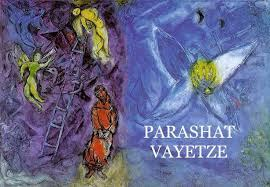One often hears “The Old Testament is for the Jews, while
the New Testament is for Christians”. I
think this misses the mark, these are not two separate books, but one,
complete, Book of God. The old means
nothing without Christ fulfilling it, and the new means nothing without being
the fulfillment of the old. One complete
book, in two parts.
However, most Bible studies that I’ve experienced focus on
one or the other, seldom both. Santos,
does the unthinkable and has filled this work with scripture from both the Old
and New Testaments.
The Teleios Trail is designed in a format of 30 bite
sized, hard hitting topics, aimed at Spiritual Maturity. Starting with Why Spiritual Maturity
Matters, and continuing through Finding Wisdom in the Word, Discerning
Law and Grace. Then on to tougher topics like: Pulling Down Idols, Severing the Evil
Root, Caring for Ourselves, while Glorifying God. Topics like Living with Purpose and Persevering through Adversity are
just a handful of the items that you will experience in this work.
While The Teleios Trail is not an all-encompassing
ticket to Spiritual Maturity, it is designed to get you started on the right
path. If you’re tired of the fluff that
leaves you confused as to why you read it, this book is for you. Sprinkled with just enough personal
experience, and lots of scripture to justify the words you need to hear.
While it’s designed to help those that help others, it’s
pointed enough for anyone that desires to grow in Spiritual Maturity.
A selection of the “telling it like it is” passages from The
Teleios Trail:
From the introduction: “We often find it easier, however, to
use the Christian Bible as a tool for behavior modification than as a source of
spiritual transformation. Telling people
how to live can be easy; helping them renew their minds presents a far greater
challenge. Human nature is tricky, and
the breadth of knowledge found within the many pages of Scripture can leave us
wondering where to begin. Even seasoned
pastors will struggle deciding what topics to address. In this, The Teleios Trail should
prove quite useful.”
“… a resource for pastors, small group leaders, campus
ministers, and any others involved with the painstaking work of growing
people.”
“The quip “Don’t ask questions; just believe it!” does
nothing to help people grow. Such statements do more damage than good. Inquisitive minds will always bring questions
to the table, which helps foster growth.”
“If naturalism is true, we are insignificant, alone, and
without meaning in this vast cosmos.”
“We either choose to embrace Jesus as Lord and Savior, or we
labor against Him by default (Matthew 12:30).
No in-between exists.” From The
Reality of Judgment From on High Chapter.
From Chapter 21, Dealing with Counterfeit Leaders:
“Counterfeit leaders are an unfortunate and dangerous reality in our
world. A necessary part of helping
people grow to maturity involves training them to understand truth and to
recognize the warning signs of a spiritual fraud.
Caring For Ourselves, Chapter 21, starts out with “As much
as we hate to admit it, human nature is prone to deception and error.”
Santos pulls no punches, and his words ring true to me. A much-needed breath of clean air in a
trouble time. Don’t pass on this one, I
recommend this work highly.








